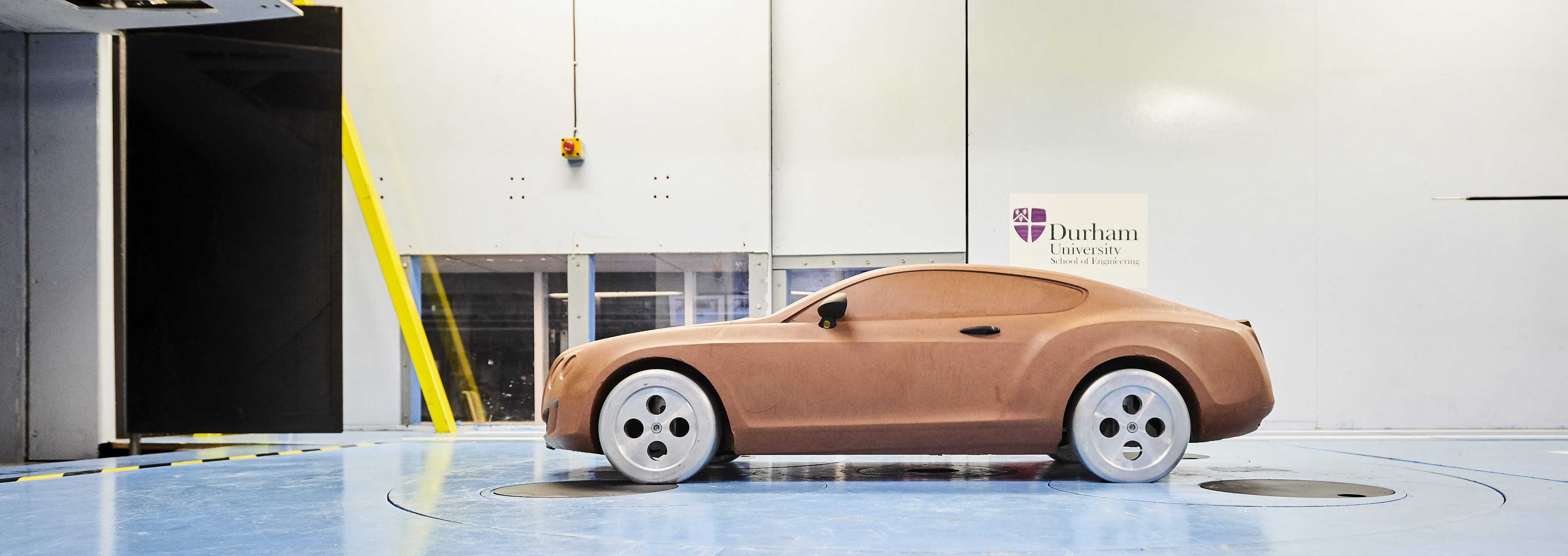Case Studies
Our research is pushing the boundaries of engineering and changing our world; our research partnerships have resulted in significant benefits for a wide range of people and companies. These case studies are some of the key research outputs from our Department and were submitted to REF 2021.
Radio Propagation for 5G Wireless Networks
On-road Vehicle Aeroacoustics
Soil Health
Rail Support Systems
Radio Propagation for 5G Wireless Networks
 Research undertaken at Durham has provided the data used by the International Telecommunications Union (ITU) to support the development of the 5G network standards. The research undertaken provides the sole dataset for the 73 GHz frequency band and the generation of new recommendations around signal strength attenuation from outside to inside buildings.
Research undertaken at Durham has provided the data used by the International Telecommunications Union (ITU) to support the development of the 5G network standards. The research undertaken provides the sole dataset for the 73 GHz frequency band and the generation of new recommendations around signal strength attenuation from outside to inside buildings.
On-road Vehicle Aeroacoustics
 A thorough assessment of the real-world aerodynamic and aeroacoustic behaviour of vehicles has been made possible using the bespoke testing facilities in the Engineering Department. The results have enabled leading manufacturers to increase fuel efficiency, as well as decrease driver fatigue, leading to a range of positive economic impacts. The work has been taken up by a range of OEM manufacturers who manufacture over a million vehicles annually.
A thorough assessment of the real-world aerodynamic and aeroacoustic behaviour of vehicles has been made possible using the bespoke testing facilities in the Engineering Department. The results have enabled leading manufacturers to increase fuel efficiency, as well as decrease driver fatigue, leading to a range of positive economic impacts. The work has been taken up by a range of OEM manufacturers who manufacture over a million vehicles annually.
Soil Health

Environmental engineering research has directly led to the development of government policy on soil health, how land is remediated and the effect of soil health on human health. This work fed in to the UK’s 25 year Environment Plan and subsequent Agriculture Bill. Regional involvement in the research has included the remediation and regeneration of a brown field site in County Durham that is now a thriving community garden dedicated to a local WWII hero. More details can be found here.
Rail Support Systems

Computational stress analysis has led to fundamental changes to the rail-bearer/sleeper fixing methods and these have been implemented across the UK National Rail network. These changes reduce the chance of failure due to structural integrity issues in comparison to traditional techniques that are used across the world. The changes have facilitated significant cost savings in the UK and have enabled the next generation of resilient fastening methods.


/prod01/prodbucket01/media/durham-university/departments-/engineering/74202-5112X1676.jpg)
/prod01/prodbucket01/media/durham-university/departments-/engineering/Radio5G.jpg)
/prod01/prodbucket01/media/durham-university/departments-/engineering/RoadVehicle.jpg)
/prod01/prodbucket01/media/durham-university/departments-/engineering/REFsoil.png)
/prod01/prodbucket01/media/durham-university/departments-/engineering/Railwaysq.png)